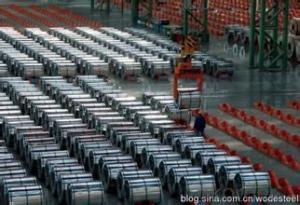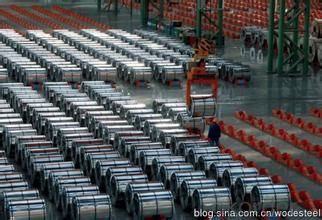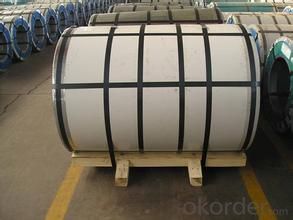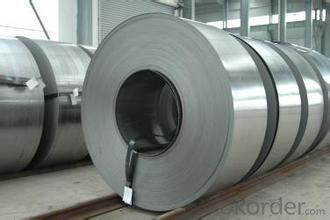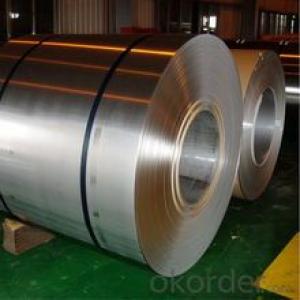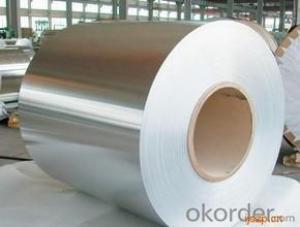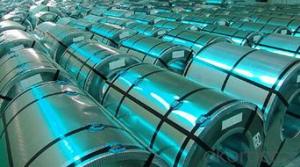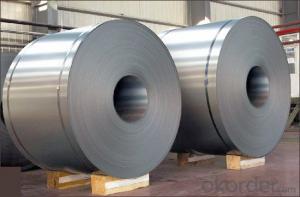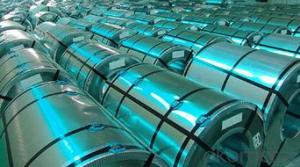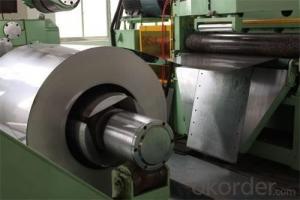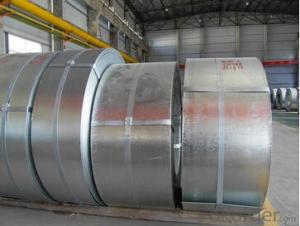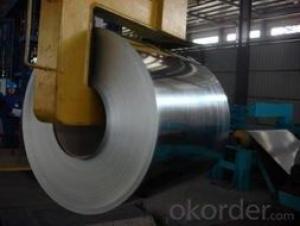Chines Best Cold Rolled Steel Coil JIS G 3302 for Car Manufacturer
- Loading Port:
- China main port
- Payment Terms:
- TT OR LC
- Min Order Qty:
- 50 m.t.
- Supply Capability:
- 10000 m.t./month
OKorder Service Pledge
OKorder Financial Service
You Might Also Like
Chines Best Cold Rolled Steel Coil JIS G 3302
1.Structure of Cold Rolled Steel Description:
The raw material of cold rolled steel coil/sheet is high quality hot rolled product, and after pickling continuous rolling, degreasing, annealing,skin pass,slitting and cut to length line etc. Along with it many kinds of new technology and new process of global cold rolling production have been applied. Therefore the quality of the goods could be guaranteed. The product is widely used in outdoor and interior decoration, furnishing manufacturing, home appliance, automobile etc.
2.Main Features of the Cold Rolled Steel:
• Excellent process capability
• Smooth and flat surface
• Workability, durability
• Excellent heat resistance performance
• High strength
• Good formability
• Good visual effect
3.Cold Rolled Steel Images
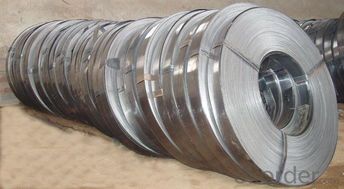
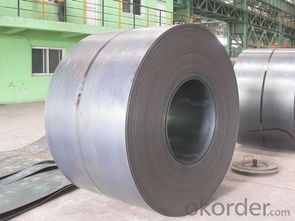
4.Cold Rolled Steel Specification
Standard:AISI,ASTM,DIN,GB,JIS,JIS G3302 ASTM 653M EN10142
Grade: Q195~Q345
Thickness: 0.16mm~2.0mm
Width: 1250mm MAX
Coil weight:3-12 MT
Coil ID:508/610mm
Chemical composition:
C | Si | Mn | Cr | Ni | P | S |
0.150 | 0.476 | 11.231 | 12.50 | 0.900 | 0.039 | 0.010
|
5.FAQ of Cold Rolled Steel
1.How to guarantee the quality of the products?
We have established the international advanced quality management system,every link from raw material to final product we have strict quality test;We resolutely put an end to unqualified products flowing into the market. At the same time, we will provide necessary follow-up service assurance.
2. How long can we receive the product after purchase?
Usually within thirty working days after receiving buyer’s advance payment or LC. We will arrange the factory manufacturing as soon as possible. The cargo readiness usually takes 15-25 days, but the shipment will depend on the vessel situation.
- Q: I am looking for a steel taper kit to help me start stretching my earlobes. I wanted something like the following but in steel instead of acrylic. Preferably something under $40 and from a reputable website. I don't know how much damage acrylic tapers can do in the few seconds it would be inside my earlobe, but I would rather use steel just to be safe. I will be forever grateful if anyone can help.
- This okorder / Preferably something under $40 and from a reputable website. I don't know how much...
- Q: Recently I bought Bleach's Grimmjow's replica sword from swordsswords and I was wondering how strong is 440 steel when used for a 21 inch blade? Can it cut effectively? Is it dangerous?
- You were seriously ripped off. I own a 440 stainless sword that I paid $29 for on eBay. It ain't a half bad sword actually, and like you said, I have never failed to cut straw mats with it. The 440 stainless is about as good as you can get without paying for a folded steel katana. However, I also own a Bugei company folded steel katana and the difference is night and day. The balance is better, the edge is incredible (you could literally shave with it) and there's just something....ELSE. There's a different FEEL. It's like the difference between using a tool and a weapon. As far as the shingami, again, you were ripped off. You can buy a traditional shingami from eBay and actually get it from a reputable company and not take your chances with the stuff you find at a mall. Even then, you will only pay maybe $50-$75 for a good set including shipping. Generally speaking, nothing you get from a mall or COULD get from a mall will be as good as something from a reputable company like Bugei. However, like in the case of your katana, some things might be good ENOUGH for you. However, you do need to look around and do some price checking before you drop that much money for anything. Hope this helps... Sensei Cox
- Q: I work in a steel foundry 10-12 hours a day where we melt and pour stainless steel tubes. The pour temperature for some of them is very close to the boiling point of stainless steel (about 3800 degrees) because it has to be VERY liquid for the application we use it. Anyway, it does boil a little and we breath in the vapours which I can assure you ARE indeed vapourized stainless steel (it collects and cools on everything and makes a nice shiny coating). Ok, so to the question, does breathing vapourized stainless steel all day pose a health risk such as cancer? Anyone know? I'm just curious.
- you okorder
- Q: I'm writing a book, and there is a part where there is a death arena with a white-hot river of steel. How hot would that be?
- I had the Odyssey white steel # 5 and absolutly hated it. I gave it away. I didn't like the feel on lag putts. I now putt with a Scotty Cameron Circa 62 #2 and I love it. Would highly recommend a Scotty Cameron for anyone.
- Q: PLS tell me all Foam Steel Characteristics and use?Thanks
- Foam steel [often steel foam] is used in applications that require light weight but high rigidity and strength. Watertight doors on modern ships are often made of foam steel. Pressure doors on aircraft are possible uses. As we keep striving for lighter weights in cars, foam steel might have some useful applications in bodies. There is a technical paper online that is in .pdf format that has a good discussion of the process and characteristics of foam steel.
- Q: It seems that steel would be stonger and more stable than wood, fire resistant, and better for the environment, so why are most homes wood-framed rather than steel-framed?
- In most locations a 2x4 is slightly cheaper than a steel stud. The labor is cheaper with wood because it's less skilled and there are many people to swing a hammer cheaply. Most contractors do what they know and most only know wood.
- Q: ive made lots of knives but they are dark and not shiny. how do i polish a knife and make it shiny
- If the steel knife is dark and not mirror-shiny, then it is probably carbon steel and not stainless steel. If they are carbon steel, then you cannot polish it to a mirror finish - sorry. If there's any rust on them, you can use a very-fine grit sandpaper to remove. Do not put carbon steel knives in the dishwasher, and dry them thoroughly after hand-washing. For long-term storage (meaning you don't plan to use the knife within the next few weeks), wipe the blade a bit with some mineral oil, then store the blade portion of the knife in a plastic bag.
- Q: I'v had 5 people at school say steel is stonger than Titanium and some(5) kids at school say titanium stronger then steel but i looked it up on the internet and i got soem web sites that say steel is stronger then titanium and some sites that say titanium is stonger then steel sooooo???? witch one is strongerPS i no tungsten is stronger then steel.... and titanium.................
- This Site Might Help You. RE: is Titanium Stronger than steel? I'v had 5 people at school say steel is stonger than Titanium and some(5) kids at school say titanium stronger then steel but i looked it up on the internet and i got soem web sites that say steel is stronger then titanium and some sites that say titanium is stonger then steel sooooo?? witch...
- Q: How do steel coils contribute to energy efficiency in lighting?
- The energy efficiency of lighting relies heavily on the type of light source chosen, such as incandescent, fluorescent, LED, or halogen bulbs. Each of these light sources consumes energy differently. On the other hand, steel coils serve a different purpose in lighting fixtures. Their main function is to provide structural support, dissipate heat, and protect the components. They do not have a direct impact on the energy efficiency of the lighting system. However, steel coils can indirectly improve energy efficiency by offering sturdy support to the fixtures. This ensures that the installations are reliable and long-lasting, reducing the need for frequent maintenance and replacements. A well-supported lighting system guarantees optimal performance and minimizes energy wastage or inefficiencies caused by loose or unstable fixtures. Furthermore, steel coils can also be used to manufacture reflectors or housings for lighting fixtures. These components play a role in enhancing the overall efficiency and distribution of light. By effectively reflecting and directing the light output, energy utilization and illumination can be optimized, resulting in reduced energy waste. Although steel coils themselves do not directly influence the energy efficiency of lighting, their incorporation in the construction and support of lighting fixtures indirectly contributes to a more energy-efficient lighting system.
- Q: What are the different methods of edge trimming for steel coils?
- There are several different methods of edge trimming for steel coils, including slitting, shearing, and laser cutting. Slitting involves cutting the coil into narrower strips using circular blades. Shearing involves cutting the edges of the coil using a straight blade. Laser cutting uses a high-powered laser to precisely trim the edges of the coil.
Send your message to us
Chines Best Cold Rolled Steel Coil JIS G 3302 for Car Manufacturer
- Loading Port:
- China main port
- Payment Terms:
- TT OR LC
- Min Order Qty:
- 50 m.t.
- Supply Capability:
- 10000 m.t./month
OKorder Service Pledge
OKorder Financial Service
Similar products
Hot products
Hot Searches
Related keywords
